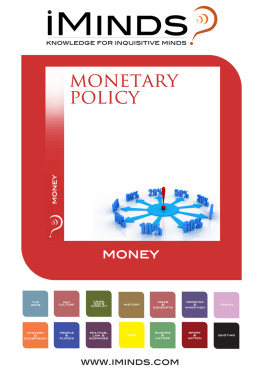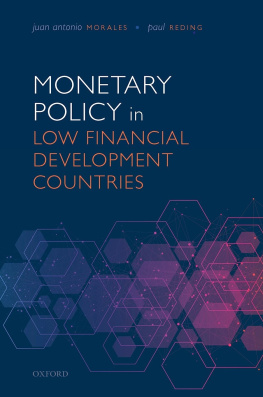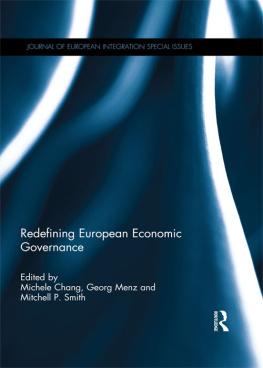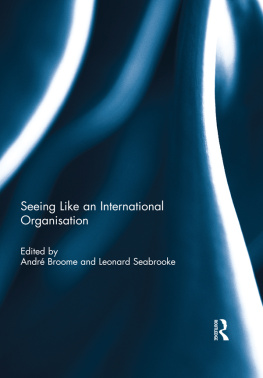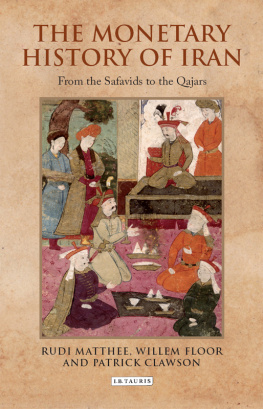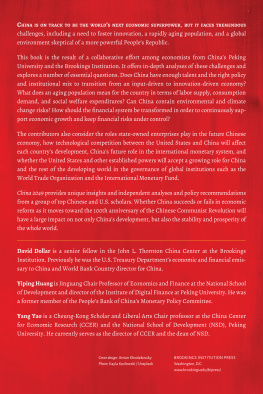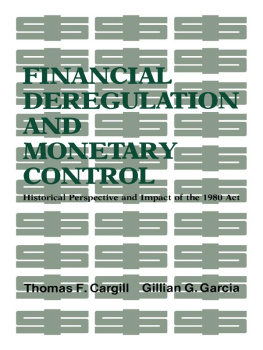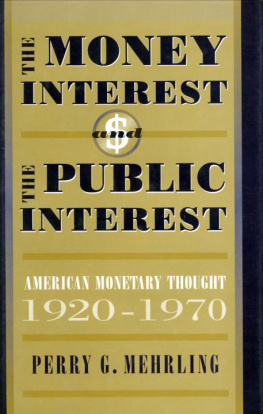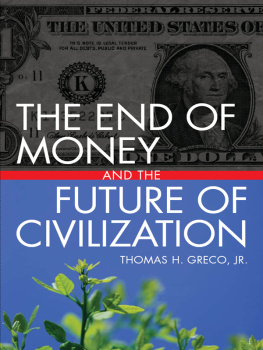ROUTLEDGE LIBRARY EDITIONS:
THE ECONOMY OF THE MIDDLE EAST
Volume 21
THE MONETARY SYSTEM OF EGYPT
THE MONETARY SYSTEM OF EGYPT
An Inquiry Into Its History and Present Working
MOHAMMED ALI RIFAAT
First published in 1935
This edition first published in 2015
by Routledge
2 Park Square, Milton Park, Abingdon, Oxon, OX14 4RN
and by Routledge
52 Vanderbilt Avenue, New York, NY 10017
Routledge is an imprint of the Taylor & Francis Group, an informa business
1935 George Allen & Unwin Ltd
All rights reserved. No part of this book may be reprinted or reproduced or utilised in any form or by any electronic, mechanical, or other means, now known or hereafter invented, including photocopying and recording, or in any information storage or retrieval system, without permission in writing from the publishers.
Trademark notice: Product or corporate names may be trademarks or registered trademarks, and are used only for identification and explanation without intent to infringe.
British Library Cataloguing in Publication Data
A catalogue record for this book is available from the British Library
ISBN: 978-1-138-78710-0 (Set)
ISBN: 978-1-138-81052-5 (Volume 21)
Publisher Note
The publisher has gone to great lengths to ensure the quality of this reprint but points out that some imperfections in the original copies may be apparent.
Disclaimer
The publisher has made every effort to trace copyright holders and would welcome correspondence from those they have been unable to trace.
THE
MONETARY SYSTEM OF EGYPT
AN INQUIRY INTO ITS HISTORY AND PRESENT WORKING
BY
MOHAMMED ALI RIFAAT
LONDON
GEORGE ALLEN & UNWIN LTD
MUSEUM STREET
FIRST PUBLISHED 1935
Printed in Great Britain
TO
MY FATHER AND MOTHER
IN EVERLASTING
GRATITUDE
PREFACE
THE present inquiry embodies in an abridged form the results of a detailed study of the Egyptian economic and financial development. If published in its original form, the authors work would have filled at least two large volumes containing some five or six hundred pages each. This is at present an impossible task. For one thing, it is not certain that the publication of a volume of such a size will appeal to a circle of readers sufficiently wide to justify its undertaking. And, in absence of any financial support from an interested body, this uncertainty cannot be put to the test.
Nevertheless, in the interest of knowledge if for nothing else, I feel bound not to allow the main conclusion of this pioneer work to remain unknown to the public. Even this modest aspiration would have been impossible to realise, if it were not for the generosity of my publishers, Messrs G. Allen & Unwin Ltd, to whom I am most grateful.
It is unfortunate that in Egypt, a country in a comparatively early stage of economic development, economic researches have, as yet, received neither the encouragement nor the attention they deserve. If the Egyptian people and its Government recognise their obligation, they will no doubt be handsomely repaid. I can only hope that my work, incomplete as it is, may stimulate others who will not be precluded, as I have been, from publishing the full results of their labour.
I am profoundly indebted to Professor T. E. Gregory, Professor of Banking in the University of London, and to Dr M. Sabri, Director of the Egyptian Education Mission at Geneva, for their valuable assistance and most stimulating discussions. Needless to say, I am wholly responsible for the views expressed in this book.
M. A. R.
CONTENTS
TABLES
THE MONETARY SYSTEM OF EGYPT
CHAPTER I
ECONOMIC DEVELOPMENT AND CONDITIONS
THERE exists some sort of reciprocal relation between the monetary system of any organised community and its general economic structure. The monetary system is at once conditioned by, and itself a condition of, economic organisation. In particular, the chief directions of economic activities have an influence upon the evolution and working of the monetary machine, almost equal to that which the latter exerts over those activities. It is thus necessary in a scientific investigation of the Monetary System of Egypt to begin with an analytical review of the countrys economic development and conditions, in order, first, to arrive at a clear understanding of the environmental factors of the monetary institutions, and secondly, to trace the influence which these institutions have had upon economic organisation.
A striking feature of the economic life of Egypt has, for more than a century past, been the predominant role of the political executive. When Mohammed Ali, the founder of the present royal family, assumed power in the early years of last century (180548), he gradually instituted a system of State monopolies that was calculated to bring under his personal authority almost all forms of enterprise. but rather of an enlightened ruler who saw no better alternative to his own enterprise and had the courage, in face of internal and external opposition, to act on his convictions.
In the first place, the peasant who, under the Memilukes (war-like local chieftains), had been in much the same position as a serf in the feudal system of medieval Europe, was now, at least, free from being attached to the land. Nor was he, in general, dispossessed when the ownership of land was taken over by the State. He could still cultivate his plot on payment of a fixed rental. He was, in addition, greatly aided by the revolutionary changes which the ruler introduced: improvements in the technique of production, irrigation works, new crops, especially cotton, which was to become the staple crop, and so on. True, large estates, amounting in all to about 200,000 feddans, were given almost free, but liable to taxation, to eminent citizens. The bulk of the land so distributed, however, was so poor that its proper development and exploitation was thought to be best assured by big landlords.
Secondly, as regards commerce and industry, Mohammed Ali found the country hopelessly disorganised, and its wealth dissipated under the mismanagement of his predecessors who had been ruling the country with a rod of iron, and making it the theatre of perpetual local wars.
Last, but by no means least, Mohammed Ali contributed a great deal to the advancement of Egypt through extensive development of public works, social services and administrative and judicial reforms. Not only were many important canals dug, bridges and agricultural roads built up, but also the flow of the Nile regulated by the famous Delta Barrage, north of Cairo. For the education of his subjects, he opened schools, sent special missions to the big universities of Europe. He built hospitals and clinics. He reformed the machinery of government and the judiciary.
Nevertheless, a regime which owes its existence to a single individual is apt to lose much of its vitality after his departure. Yet, in spite of this, Mohammed Alis system lasted, apparently with little modification, until a few years after his death, when his own son, Said (1854-63), suddenly decreed the abrogation of all State monopolies. Such a sudden and drastic step plunged the country into confusiona confusion that was aggravated by circumstances over which Egypt had no control.


